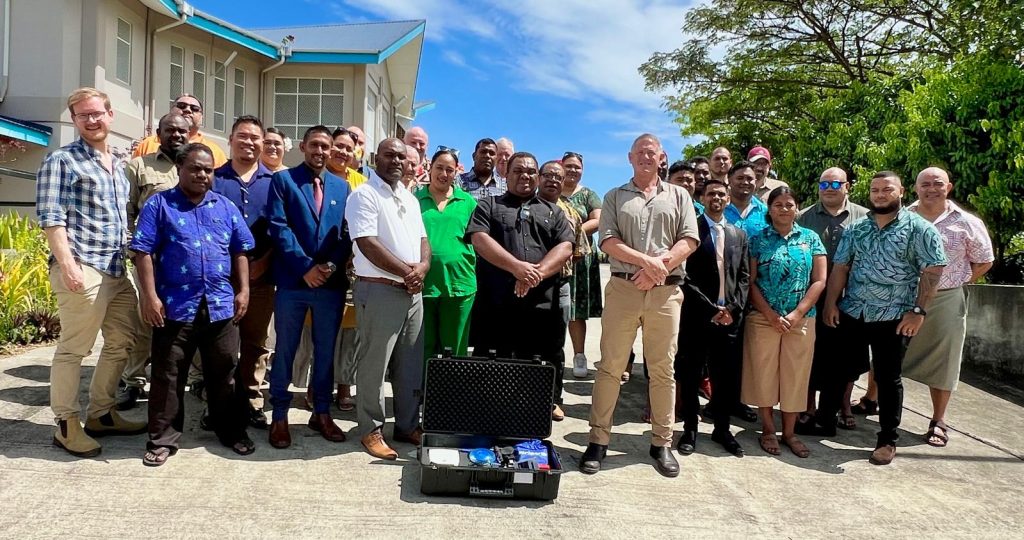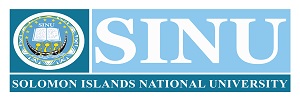
Participants with the facilitators and experts at the Regional Workshop
Press Release
26 September 2025
The Solomon Islands National University (SINU) has successfully hosted a three-day regional workshop on Mobile Laboratory Technologies for Animal and Plant Health from 24–26 September at the FAFF Conference Room, Kukum Campus.
The workshop brought together experts and participants from across the Pacific to strengthen regional diagnostic capacity for transboundary animal diseases and emerging risks that threaten food security, rural livelihoods, and public health.
Facilitated by leading trainers Professor Grant Rawlin, Roger Paskin, Adedoni Lopes, Peter Mee, and Mark Blacket, the training introduced innovative mobile diagnostic tools such as Loop Mediated Isothermal Amplification (LAMP), DNA barcoding, and the MinION DNA Analysis system. These technologies enable rapid, reliable field-based testing to enhance animal and plant health surveillance.
Although unable to attend the workshop in person, SINU’s Vice-Chancellor, Professor Transform Aqorau, emphasized the importance of building local scientific capacity through regional collaboration:
“This workshop underscores SINU’s commitment to advancing scientific innovation and regional cooperation in areas critical to our collective wellbeing. By equipping our researchers, students, and Pacific colleagues with cutting-edge mobile diagnostic technologies, we are strengthening our capacity to detect and respond to threats to food security, agriculture, and public health. This is an investment not only in science but also in the resilience of our communities and the sustainability of our shared Pacific future.”
Over the three days, participants engaged in hands-on sessions, case studies, and field epidemiology exercises, exploring how mobile laboratories can be adapted to island contexts. Practical approaches such as “lab-in-a-suitcase” systems, biosecurity with profit models, and sustainable pig husbandry practices were also showcased.
The initiative was made possible with support from regional and international partners, including the Department of Agriculture, Fisheries and Forestry (DAFF) and PHOVAPS, reflecting a shared commitment to building resilient, science-based biosecurity systems across the Pacific.
The workshop concluded today with the presentation of certificates to participants, marking a significant step toward strengthening Pacific capacity in mobile diagnostics and disease surveillance.
ENDS//
